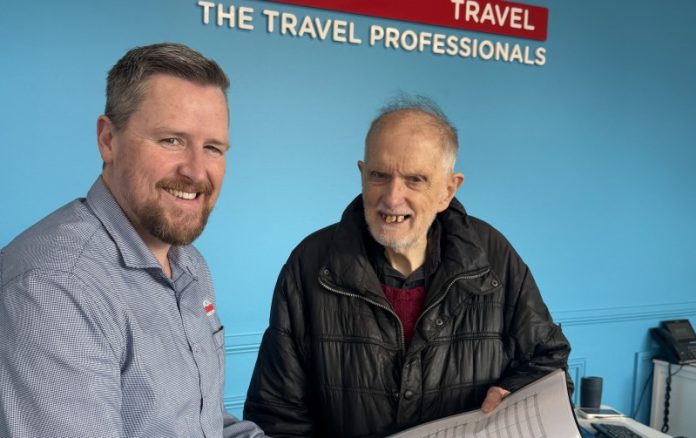
Gisborne’s beloved busker, Melvyn Cann, who was recently honoured by the Melbourne Composers League, has received another distinction. He is off to Brasiliá to a performance of the Orchestra of Claudio Santoro, formerly The Brazilian National Orchestra.
Melvyn is one of two local composers selected to write works for this orchestra. He has been acting for two or three years as mentor to the composer Martijn Schröder, from Trentham. Martijn has also been selected.
The performances will be preceded by five intense days of workshops and rehearsals in which Melvyn and Martijn will participate.
They will have a brief stopover in Santiago where Melvyn, who is a healer and inducted nangkiri and Elder of the Wirradjuri in New South Wales, hopes to meet up with Chilean indigenous healers.
In Chile, unlike Australia, indigenous practices are officially acknowledged and included in the nation’s medical services. Traditional Machi work alongside orthodox Western doctors.
Melvyn’s orchestral piece for Brazil is called Amen. It is built around the plagal cadence used or the ‘Amen’ in Protestant Hymnody.
Martijn’s piece is called Abaporu. The name is constructed from two Tupi-Guarani words meaning ‘cannibal’. However the piece is not at all ghoulish. The word has been taken up in contemporary artistic circles since about 1920 to mean the absorption and integration of forms of expression from another culture into one’s own. The integration of indigenous and Western medicine in Chile can be seen as an application of the same principle.
“Oswald de Andrade took the motif of cannibalism to suggest symbolically ingesting artistic influences both from modern European art and traditional Brazilian culture,” Melvyn said.
“The aim was to produce a style that was new, and distinctly Brazilian.
“Martijn has absorbed influences in his music which he hopes will communicate with a Brazilian audience. It is clear that this philosophical program has been successful.”







